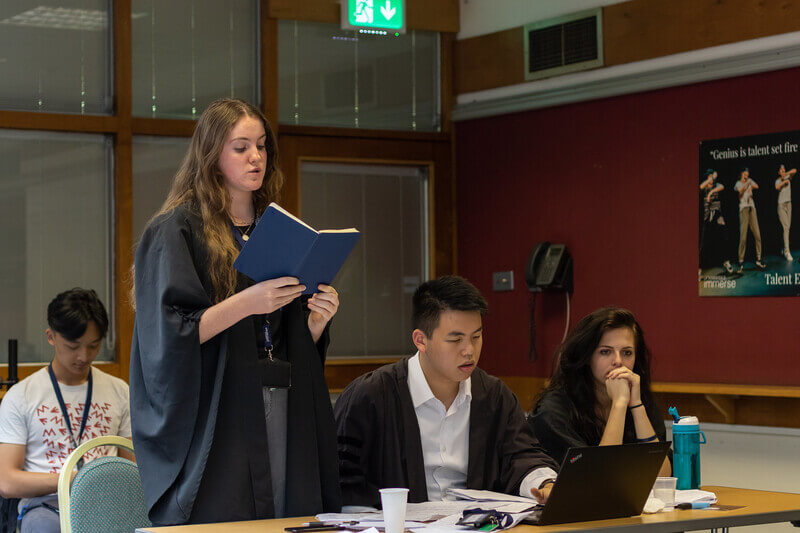In response to growing environmental concerns and regulations, companies across sectors are adopting more sustainable practices. But navigating this complex landscape requires expert guidance – this is where sustainability consultants come in. If you are wondering what is a sustainability consultant, this article will explain the role, daily responsibilities, employment opportunities, and the pathways to enter this dynamic field.
What is a Sustainability Consultant?
A sustainability consultant is a professional who advises organisations on how to operate more sustainably, minimising their environmental impact while supporting financial and social responsibility goals. These experts evaluate a company’s current environmental footprint and develop customised strategies to reduce waste, carbon emissions, water usage, and energy consumption.
Sustainability consultants help businesses align with environmental laws, improve operational efficiency, and enhance their reputation by demonstrating commitment to corporate social responsibility. Depending on their focus, sustainability consultants may also be called eco consultants, sustainability advisors, or environmental consultants.
History of the Role
The role of sustainability consultants developed alongside growing awareness of environmental issues starting in the late 20th century. Initially, the focus was on direct, technical problems such as improving energy efficiency, reducing pollution, and managing waste. However, over time, it became clear that environmental impact is influenced by many interconnected factors. Issues like how companies source their materials (supply chains), their effects on communities and workers (social impact), compliance with environmental laws (policy), and the overall mindset and practices within organisations (culture) all play important roles.
Because of this broader understanding, the profession evolved from targeting isolated problems to taking a holistic approach – helping organisations consider all aspects of their operations to reduce negative environmental effects effectively. This shift reflects how sustainability has grown into a multi-faceted field, requiring consultants to address complex and systemic challenges rather than just technical fixes.
Today, sustainability consultants integrate environmental science, business strategy, and stakeholder engagement to help companies achieve sustainable development goals (SDGs) and net-zero emissions targets.
What is the Employment Market Like?
The demand for sustainability consultants has grown significantly due to global commitments like the Paris Agreement and rising consumer and investor pressures for responsible business. Across industries – including finance, manufacturing, real estate, and public sectors – organisations seek expert advice to improve sustainability while maintaining competitiveness.
In fact, green job adverts in the UK increased by over 9% in 2024, with more than 270,000 green-related job postings nationally—a remarkable rise compared to previous years. Additionally, 74% of companies reported expanding their corporate sustainability teams in late 2024, and over one-third have created new sustainability roles within the last year.
Specialised skills in carbon accounting, ESG (Environmental, Social, Governance) reporting, and green technologies are particularly sought after. This rising demand means the field offers excellent opportunities for recent graduates as well as experienced professionals aiming to pivot toward sustainability careers.
Join the Immerse Education 2025 Essay Competition
Follow the instructions to write and submit your best essay for a chance to be awarded a 100% scholarship.

Where Do Sustainability Consultants Work?
Sustainability consultants are employed across a wide range of organisations and sectors, each with its own unique environment and focus. Here’s what working in these different settings typically feels like:
- Consulting Firms Specialising in Environmental and Sustainability Services
These firms are at the cutting edge of sustainability challenges, often balancing multiple clients with diverse needs. The vibe is dynamic and fast-paced, with a mix of desk research, fieldwork, and client meetings. Teamwork and adaptability are key, as you switch between projects involving carbon footprint assessments, sustainability strategy development, and regulatory compliance. Expect a collaborative office culture with a strong mission-driven ethos. - Large Corporations with Dedicated Sustainability Teams
Working in-house at a large company, sustainability consultants often have a more focused, strategic role. They integrate sustainability into business operations, coordinate with different departments (like supply chain, marketing, and legal), and drive long-term initiatives. The vibe here is corporate but purpose-driven—combining business acumen with passion for positive impact. You’ll build deep knowledge about one company’s operations and influence its culture from within. - Government Agencies Developing Environmental Policies and Programs
Sustainability consultants in government contribute to shaping public policy, regulations, and community programs. The environment is typically formal and policy-focused, with a strong emphasis on research, stakeholder engagement, and public accountability. The vibe blends analytical work with the opportunity to impact large-scale environmental outcomes and serve the public interest. - Nonprofit Organisations Focused on Environmental Advocacy
In nonprofits, sustainability consultants often work alongside activists, researchers, and community organisers. Here, the atmosphere is mission-driven and collaborative, centred on education, lobbying, or grassroots projects. Resources may be limited compared to corporate environments, but the passion and sense of purpose are intense. Consultants in this setting frequently engage with diverse communities and campaign for systemic change. - Construction and Engineering Companies Applying Green Building Standards
Sustainability consultants here help design, evaluate, and implement environmentally friendly building projects. The vibe is technical and detail-oriented, with plenty of interaction between architects, engineers, and contractors. You’ll focus on certifications (like LEED or BREEAM), energy modelling, and materials sourcing. This hands-on setting blends field visits with office-based problem solving. - Energy Providers and Utilities Investing in Renewable Energy Projects
Consultants working in this sector help guide the transition to cleaner energy sources. The vibe is innovative and future-focused, often involving cutting-edge technology like solar, wind, and battery storage. You may work with engineers, policy teams, and business leaders to plan sustainable energy infrastructure and ensure regulatory compliance, with a strong emphasis on data analysis and project management.
Many sustainability consultants work within multidisciplinary teams, combining expertise from engineering, business, communications, and environmental science. They often travel to client sites to conduct audits, gather data, and deliver tailored recommendations. Remote collaboration with global experts is common, enabling the sharing of best practices and innovative solutions.
What Does a Sustainability Consultant Do? Day-to-Day Responsibilities
Conducting Environmental Audits and Assessments
Who does this?
- Consulting firms specialising in environmental/sustainability services
- Construction and engineering companies
- Large corporations with sustainability teams
- Government agencies (for regulatory compliance and public projects)
Explanation:
In these roles, consultants measure carbon footprints, energy consumption, waste output, water use, and other environmental impacts by collecting data from company operations or project sites. For example, in engineering or construction firms, consultants conduct site visits to evaluate building energy efficiency or resource use. Consulting firms and government agencies often carry out formal environmental impact assessments to ensure new projects meet legal and sustainability standards.
Developing Sustainability Strategies
Who does this?
- Consulting firms
- Large corporate sustainability teams
- Energy providers and utilities
- Government agencies and nonprofits
Explanation:
This involves crafting tailored, actionable plans to help clients reduce environmental impact while maintaining business goals. For example, a corporate team might develop a renewable energy target or waste reduction program. Consultants at energy companies focus on integrating green energy infrastructure. In nonprofits or government, the strategy may center around public campaigns or regulations promoting sustainability in communities.
Reporting and Compliance
Who does this?
- Consulting firms
- In-house corporate sustainability departments
- Government agencies overseeing environmental programs
Explanation:
Preparing sustainability reports aligned with frameworks like ISO 14001 or BREEAM, and ensuring adherence to environmental regulations, is key here. Consultants in corporate teams or regulatory bodies write formal disclosures for stakeholders or regulatory filings. This role combines technical data analysis with clear communication to fulfill legal and investor requirements.
Stakeholder Engagement
Who does this?
- Consulting firms
- Nonprofit organisations
- Corporate sustainability teams
- Government agencies
Explanation:
Consultants advise on communication strategies to promote sustainability initiatives—training staff, engaging suppliers, or informing communities. For nonprofit workers, this may involve community organizing and outreach, while consultants in corporations focus on internal culture change and supplier engagement.
Project Management
Who does this?
- Consulting firms
- Large corporations
- Engineering and construction companies
- Energy providers
Explanation:
Coordinating sustainability projects—from conception through implementation—is largely about managing timelines, resources, budgets, and contractor work. In construction, this might be overseeing green building certifications. Corporate sustainability teams juggle initiatives across departments. Consulting firms manage multiple client projects simultaneously.
Research and Innovation
Who does this?
- Consulting firms
- Government research bodies
- Energy sector consultants
- Academic or nonprofit sustainability research roles
Explanation:
Staying current on emerging technologies, policies, and best practices allows consultants to improve sustainability approaches. This involves market research, pilot projects introducing new green technologies, or advising on cutting-edge regulations and standards. Energy consultants, for instance, might evaluate renewable tech developments. Government roles often engage in policy research.
Impact of the Role
Sustainability consultants play a critical role in helping organisations reduce their environmental footprint while improving efficiency and brand reputation. Their work contributes to combating climate change, conserving natural resources, and fostering ethical business models that support community wellbeing. By integrating sustainability into core operations, consultants enable companies to future-proof their business against regulatory risks and changing market expectations.
Who Do You Work With as a Sustainability Consultant?
You collaborate with a diverse range of stakeholders, including:
- Company executives and sustainability managers setting corporate vision and funding initiatives
- Facilities and operations teams implementing practical changes on the ground
- Engineers, architects, and designers focused on sustainable infrastructure and buildings
- Legal and compliance officers ensuring regulatory adherence
- External suppliers and contractors adapting to sustainable procurement practices
- NGOs and policymakers promoting environmental stewardship and social responsibility
How to Become a Sustainability Consultant
Education and Qualifications
Most sustainability consultants hold degrees in environmental science, engineering, business, or related disciplines. Specialised training or certifications in sustainability management, carbon accounting, or environmental law also enhance job prospects.
Common qualifications include:
- Bachelor’s or master’s degree in environmental science, sustainability, or ecology
- Professional certifications such as LEED AP, BREEAM Assessor, or GHG Protocol certification
- Courses in sustainability reporting and ESG frameworks
- Project management credentials can also be beneficial
Skills Required
Successful sustainability consultants combine technical knowledge with strong interpersonal skills. Key abilities include:
- Environmental data collection and analysis
- Strategic thinking and problem-solving
- Clear report writing and presentation skills
- Ability to manage multiple projects and stakeholders
- Negotiation and influence to drive behavioral change
- Familiarity with sustainability standards and regulations
Energy sustainability consultants focus more on energy efficiency and renewable sources, while sustainability reporting consultants specialise in producing compliant disclosures for stakeholders.
Where Can the Role Take You?
A career as a sustainability consultant offers diverse pathways:
- Advancement to senior consultant, project manager, or sustainability director roles within consulting firms or corporations
- Specialisation in renewable energy, green building, circular economy, or climate risk advisory
- Transition to roles in policy development, environmental advocacy, or sustainability-related finance
- Entrepreneurship by founding consultancies focused on innovative sustainability solutions
With the global trend toward sustainable development accelerating, skilled sustainability experts are well-positioned for long-term career growth.
Conclusion
Understanding what is a sustainability consultant reveals a crucial role at the intersection of environmental science, business strategy, and social responsibility. These professionals empower organisations to implement eco-friendly practices that reduce environmental impact while enhancing financial performance.
The profession offers a fulfilling career for those passionate about sustainability, combining technical expertise with impactful, real-world change. Whether you are aiming to become a corporate sustainability consultant or specialised environmental advisor, building the right education, skills, and experience will enable you to thrive in this expanding field.
Explore more about environmental science careers in sustainable development here and consider joining a Sustainability Summer School to kickstart your journey.




















